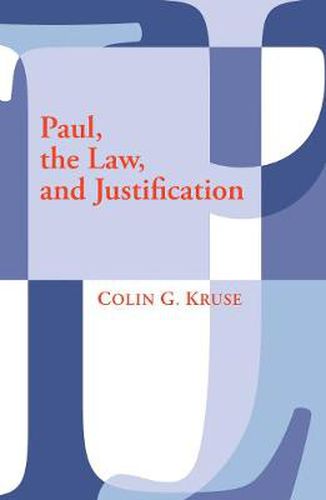Readings Newsletter
Become a Readings Member to make your shopping experience even easier.
Sign in or sign up for free!
You’re not far away from qualifying for FREE standard shipping within Australia
You’ve qualified for FREE standard shipping within Australia
The cart is loading…






Martin Luther drew a strong parallel between the religion of medieval Catholicism and the religion of first-century Judaism against which his hero, Paul, contended. Luther asserted that both taught that salvation was earned by works of merit. E.P. Sanders challenged Luther’s view of Judaism in his landmark work Paul and Palestinian Judaism (1977). Judaism was not in principle a religion in which salvation was earned through obeying the law: it was a religion based upon God’s election and grace. The debate which Sanders initiated continues, issuing in a flood of articles and monographs. Dr. Kruse insists, however, that the issues raised in the debate must not be allowed to set the agenda. Instead, he takes the loner route of inductive exegesis, allowing each of Paul’s letters to speak for itself before attempting a synthesis of Paul’s teaching on the law and justification. He faces squarely and honestly the problems which Paul’s attitude to the law raises, and he proposes thoroughly researched and considered solutions. His book is an important contribution to the ongoing debate.
$9.00 standard shipping within Australia
FREE standard shipping within Australia for orders over $100.00
Express & International shipping calculated at checkout
Stock availability can be subject to change without notice. We recommend calling the shop or contacting our online team to check availability of low stock items. Please see our Shopping Online page for more details.
Martin Luther drew a strong parallel between the religion of medieval Catholicism and the religion of first-century Judaism against which his hero, Paul, contended. Luther asserted that both taught that salvation was earned by works of merit. E.P. Sanders challenged Luther’s view of Judaism in his landmark work Paul and Palestinian Judaism (1977). Judaism was not in principle a religion in which salvation was earned through obeying the law: it was a religion based upon God’s election and grace. The debate which Sanders initiated continues, issuing in a flood of articles and monographs. Dr. Kruse insists, however, that the issues raised in the debate must not be allowed to set the agenda. Instead, he takes the loner route of inductive exegesis, allowing each of Paul’s letters to speak for itself before attempting a synthesis of Paul’s teaching on the law and justification. He faces squarely and honestly the problems which Paul’s attitude to the law raises, and he proposes thoroughly researched and considered solutions. His book is an important contribution to the ongoing debate.